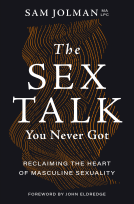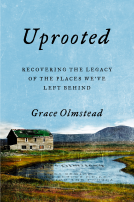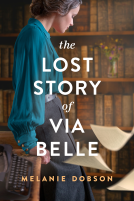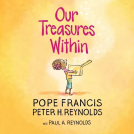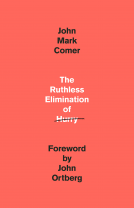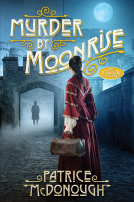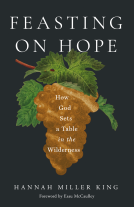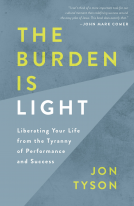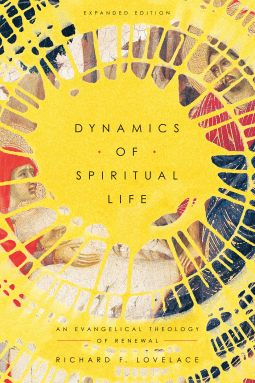
Disruptive Witness
Speaking Truth in a Distracted Age
by Alan Noble
This title was previously available on NetGalley and is now archived.
Send NetGalley books directly to your Kindle or Kindle app
1
To read on a Kindle or Kindle app, please add kindle@netgalley.com as an approved email address to receive files in your Amazon account. Click here for step-by-step instructions.
2
Also find your Kindle email address within your Amazon account, and enter it here.
Pub Date Jul 17 2018 | Archive Date Sep 16 2018
InterVarsity Press | IVP
Talking about this book? Use #DisruptiveWitness #NetGalley. More hashtag tips!
Description
- 2018 WORLD Magazine Book of the Year - Accessible Theology
- 2018 ECPA Top Shelf Book Cover Award
★ Publishers Weekly starred review
We live in a distracted, secular age. These two trends define life in Western society today. We are increasingly addicted to habits—and devices—that distract and "buffer" us from substantive reflection and deep engagement with the world. And we live in what Canadian philosopher Charles Taylor calls "a secular age"—an age in which all beliefs are equally viable and real transcendence is less and less plausible. Drawing on Taylor's work, Alan Noble describes how these realities shape our thinking and affect our daily lives. Too often Christians have acquiesced to these trends, and the result has been a church that struggles to disrupt the ingrained patterns of people's lives. But the gospel of Jesus is inherently disruptive: like a plow, it breaks up the hardened surface to expose the fertile earth below. In this book Noble lays out individual, ecclesial, and cultural practices that disrupt our society's deep-rooted assumptions and point beyond them to the transcendent grace and beauty of Jesus.Disruptive Witness casts a new vision for the evangelical imagination, calling us away from abstraction and cliché to a more faithful embodiment of the gospel for our day.
Advance Praise
"If you want to know what the next generation of evangelicalism could and should look like, look to Alan Noble. Grounded, faithful, and circumspect, he is asking all the right questions and leading us to better answers."
-Karen Swallow Prior, author of Booked: Literature in the Soul of Me
"Building on the work of philosopher Charles Taylor in A Secular Age, Alan Noble deftly describes unique modern barriers to life lived with and for the Triune God and calls fellow Christians to a better, full-bodied witness. Noble’s teaching gives me hope for the possibility of enfleshed Christian witness in an age that is prone to mostly shrug at ultimate questions. It will also leave more than a few of us disrupted ourselves."
-Katelyn Beaty, author of A Woman’s Place, editor at large at Christianity Today
"In our current cultural moment where self is at the center, distraction is the norm, and faith is anything you want it to be, fresh formation and evangelistic strategies are sorely needed. Instead of laboring to help friends, colleagues, and neighbors to merely feel safe and comfortable with our faith, perhaps it’s time to consider a return to the New Testament way. For although the world has changed, the human need has remained the same—for grace and truth, for love and law, for a culture of kindness and a call to repent, for provision of comfort andprophetic disruption. In Disruptive Witness, Alan does a terrific job of painting a picture of what this can look like for us. I highly recommend his work to you."
-Scott Sauls, senior pastor of Christ Presbyterian Church in Nashville, Tennessee, author of Jesus Outside the Lines
"Alan Noble has written a concise and timely meditation on the conditions under which Christian witness may be pursued in our age and place. This book is real food for real thought."
-Alan Jacobs, Baylor University, author of How to Think
"Helpfully situating the peculiar travails and challenges to belief and fidelity in the contemporary moment, Alan Noble invites us to practice a life in Christ deeper than the fragile faith-as-preference model, which our distracted, secular age constrains us to adopt. Instead, he calls us, as both individuals and as the church, to thoughtfully contemplate our walk and our witness to Christ, so that we might not be heedlessly swept away in the patterns of thought and practice of this age. It’s an appeal worth attending, not only for its clarity and urgency, but because it is one I’ve seen Alan embody for years in his own faithfully disruptive life and witness."
-Derek Rishmawy, PhD student at Trinity Evangelical Divinity School, columnist for Christianity Today
"In an age of distraction and the 'buffered self,' perhaps this is more a time for preparing the soil than for reaping. In any case, Alan Noble displays the disruptive resources of Christ's kingdom that are at hand. I will be recommending this book far and wide!"
-Michael Horton, professor of theology and apologetics at Westminster Seminary California, cohost on White Horse Inn
"In Disruptive Witness, Alan Noble examines the unique barriers to communicating a transcendent gospel in our distracted, secular age, directing his keen cultural analysis toward a most admirable end—evangelism. And yet, these insights into how our neighbors now process—or are unable to process—the claims of historic Christianity also apply to the fragmented, secularized people in our pews. In this regard, Noble's work will have special value to ministry leaders and pastors such as myself who are called to be disrupters and disciplers of those who, in turn, must embody a witness that 'unsettles people from their stupor.' I felt challenged by the book as a preacher, liturgist, shepherd, evangelist, father, and neighbor. You will be richly challenged by it too."
-Duke Kwon, lead pastor of Grace Meridian Hill, Washington, DC
"The title of the book, Disruptive Witness: Speaking Truth in a Distracted Age, is its thesis and prescription. How do you understand, and then speak into our distracted and secular age? Noble says with disruptive witness. Following in the path of Schaeffer, Myers, Wells, Guinness, Sire, Smith, and others, Noble offers keen analysis of the situation we are living in and helpful reflection on how both to resist and engage it. This is a book I would love to read with colleagues, seminary students, pastors, church leaders, and educators, both as an insightful commentary on our culture, and as an example of how a younger generation of evangelical thinkers are assessing and addressing it."
-Ligon Duncan, chancellor and CEO at Reformed Theological Seminary, John E. Richards Professor of Systematic and Historical Theology
"Alan Noble is both a careful, clearheaded thinker, and a passionate advocate for truth in a post-truth culture. I can think of few people who would serve as better guides for navigating the complex and frustrating culture we inhabit. This book is a must-read for those hoping that the church can maintain a bold and faithful witness in the days to come."
-Mike Cosper, author of Recapturing the Wonder and Faith Among the Faithless
"While reading Disruptive Witness I got more than a little tired of Alan Noble reading my mind, diagnosing my issues, and jabbing at the nerves of my heart. Page after page he hit on issues of thought, habit, perspective, or lifestyle with which I struggle and in which I fail to be a proper witness for Jesus. Of course what I was really tired of was my own distracted, thin faith. And those are the very things this book helps. Noble clearly and gently diagnoses the problems first and then he offers robust solutions. Disruptive Witness is incisive, substantial, and encouraging for tired, frustrated believers looking for direction."
-Barnabas Piper, author and podcaster
Available Editions
| EDITION | Other Format |
| ISBN | 9780830844838 |
| PRICE | $18.99 (USD) |
Links
Average rating from 13 members
Featured Reviews
 Sergiu P, Reviewer
Sergiu P, Reviewer
This is a very good and useful book. The author addresses the problem of Christians trying to have an impact in the world as if Christianity was just another option on the market, and claims that the proper way to live out Christianity is to live a life that disrupts the norms of naturalism and individualism, and to get out of the idea that faith is for the mind only and to live out an embodied faith.
The most important part of the book is that it does not disappoint as many recent ones have by not offering any practical solutions. The author draws from Charles Taylor and James K A Smith, among others, to present a good critique of the culture of distraction that we live in and to propose small steps toward faithful witness.
 Adam S, Reviewer
Adam S, Reviewer
Summary: In order to be a Christian within culture, we need to understand what the culture is. Which means we need to be rooted in historic Christianity as a means of disrupting the effects of culture.
The old illustration about two fish being asked how is the water, and then one asking the other, 'what is water?’ is my best description of Disruptive Witness. We are part of a culture, but we need tools, and language, to help us understand, and describe, the culture around us.
Part One of Disruptive Witness uses Charles Taylor and others to describe and understand our culture from the perspective of Christianity that is always within a particular culture. I have read a number of books about Taylor’s ideas, and I think that Disruptive Witness is one of the most understandable presentations of Taylor’s ideas.
Part Two of Disruptive Witness is focused on what we should do now that we understand some of the benefits and problems of culture. These are largely spiritual practices of the historic church that can help disrupt the effects of culture.
Over the past five years I have been meeting with a spiritual director and I am planning on pursuing formal training in that area when my children a bit older. So part two, while helpful and an important part of the book, was not new to my thinking. But part one was very helpful in giving me the language I have been looking for to understand how to think about spiritual formation within ‘a secular age’.
Much of Disruptive Witness confirms what a number of others have been saying. Charles Taylor, James KA Smith, the liturgical, Catholic, Orthodox and the pentecostal wings of the church all remind us that embodiment is essential to our Christian faith. What that means is slightly different depending on who you ask. But the fact that we are embodied keeps being brought up as particularly important for our current culture.
Part of the issue is that we can, at least in part, be disembodied Christians. Can you go to church and not really be present? (I can stream my service to my phone or iPad or TV if I cannot be present). Will anyone miss you or will you miss something from not being present? (I go to a megachurch and as much as my children love to be in their classrooms, no one is looking for me as an individual and we do not participate in the sacraments as part of our regular Sunday service, so whether I watch on a screen or participate in person, I have roughly the same experience.)
In addition to the disembodied nature of a lot of faith traditions, Noble particularly points out the problems with our constant, but distracted attention. The distraction and consistent jumping from task to task, keeps us from thinking deeply and dealing with some of the deeper issues of life. It is isn’t only our phones and social media distractions, it is also our individualism that separates us from community and deep relationships that makes us believe that we are creating ourselves as individuals apart from our communities, not individuals that are within community.
I really do think the part two suggestions are part of how we created a ‘disruptive witness’ to culture about what it means to be Christians. But for me, it is the part one language that gives voice to what it means to be a Christian that makes this book an important read to me. I picked up an advance copy of the book nearly two months ago. I read it through, set it aside for a while and then went back and re-read part one again. It has convinced me that I really do need to read Charles Taylor directly soon.
Disruptive Witness: Speaking Truth in a Distracted Age by Alan Noble Purchase Links: Paperback, Kindle Edition, Audible.com Audiobook
Alan Noble’s book, Disruptive Witness, tackles a familiar theme in a fresh way. He has the ability to put into concise language what is for many of us a vague discontent. The book contains many inspiration quotes from a range of sources, not limited to his chief inspiration, Charles Taylor. The author also includes a number of practical strategies. I found his thoughts about personal habits and cultural participation particularly interesting. Alan Noble thinks deeply, and writes with insight. The discussion about everything we see and touch ultimately alluding to the Creator was a thought-provoking concept, as was his comment that we ‘court’ suffering to look for an experience of reality. A timely book.
 Paul M, Reviewer
Paul M, Reviewer
Modern life is distracting and shallow. That goes without saying. But how should a Christian respond in the modern environment of social media? How can a connected life reflect Christian discipleship? Alan Noble has a few things to say about these issues in Disruptive Witness: Speaking Truth in a Distracted Age.
A few things stand out as I reflect on the book. First and foremost, Noble argues against a trivialization of faith. This hit home to me as I think about my Facebook feed and the posts of my friends, both believers and non-believers. It's easy for faith, as expressed through social media, to be seen as merely on choice among many, a lifestyle category. You follow a particular style of music, sci-fi comics, political activism. Well, I follow Jesus, as you can see from this meme I just posted. . . . Talk about robbing the gospel of its distinctiveness and immediacy. But in many cases, that's exactly what happens. Our connection to Jesus seems superficial, like our connection to a sports team.
Noble writes about the "double movement," which he describes as "the practice of first acknowledging goodness, beauty, and blessing wherever we encounter them in life, and then turning that goodness outward to glorify God and loving our neighbor." A life online can only hint at this double movement. While we can express our identity in Christ online to a limited extent, to glorify God and love our neighbor, we must log off Facebook and put down our smart phones.
Noble is not anti-technology or anti-social media, but he wants Christians to be reflective regarding how technologies impact the practice of our faith. The more distracted we are, and the more the world around us becomes secular, it's worth taking some time to reflect on our own practices and connection to God and each other.
Thanks to NetGalley and the publisher for the complimentary electronic review copy!
 Tom M, Reviewer
Tom M, Reviewer
Good reading for those who would desire to mature in Christian discipleship. Could be used in small groups that are well along in their Christian walk
Meditations on applications of the lessons of Charles Taylor's <i>A Secular Age</i> to Christian faith in modern America.
The author distills many of the primary lessons from <i>A Secular Age</i>: the "optionalization" of faith, the development of the buffered self, etc., and also spoke of the siren song of modern consumerism and the constant distractions of the age.
The author makes a case for living the faith as a disruptive witness: no longer content presenting Christianity as but one option for lifestyle among many, to take its claims seriously and to live like it, and attempts to find some ways forward.
His analysis and application of Taylor is excellent. I appreciated his concern regarding how the Gospel and church are presented to people in terms of what works in marketing, with kitsch, or in any other way that makes the Gospel look like just one option among many in the modern marketplace. His focus on practices which are countercultural - to cease distraction, at least at times, for prayer, service, and devotion, to really mean what is prayed, sung, and preached, etc., are beneficial.
At times the Reformed/Calvinist inclinations of the authors are made evident, and that must be kept in mind. Nevertheless, a work which deserves the high regard it is receiving in many places. Worth consideration.
 Zachary G, Reviewer
Zachary G, Reviewer
A book that has the work of Charles Taylor underpinning much of it's thought is assured to be good if it is executed well. Alan Noble does this, and helps the modern Christian to understand how to best share and live out their faith in the postmodern culture we find ourselves in. Noble highlights our culture's emphasis on instant gratification which hinders proper reflection, and the way that Christianity is seen as equally valid amidst the milieu of religious perspectives. The book is a bit technical at times but worth the read nevertheless.
At times academic feeling, this book did an excellent job of explaining how to talk about our beliefs with others in this age of technology. It also went into detail about how to stay connected to our faith personally. This book would be a great one for small group discussion.
Readers who liked this book also liked:
Peter H. Reynolds with Paul A. Reynolds
Children's Nonfiction, Religion & Spirituality


